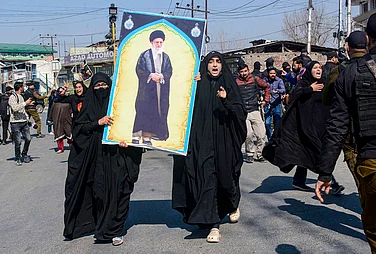Parliamentary Affairs Minister Kiren Rijiju on Saturday announced that the 2024 Budget Session in the Parliament will begin from July 22 and go on till August 12 and the Union Budget will be presented in the Lok Sabha on July 23.
The budget session will begin and conclude in both the Upper and the Lower House of the Parliament. Notably, with this, Nirmala Sitharaman will become the first Finance Minister to present seven consecutive Union Budgets, surpassing the record of Morarji Desai who had presented six budgets in a row.
Last week, while deliver her address to the joint sitting of the Parliament, President Droupadi Murmu had said that many historic steps and major economic decisions will be taken in the upcoming budget session.
She said that the 2024 Budget from the Modi government will outline its future vision. The government believes that there should be healthy competition between states for investment, President Murmu added.
Bringing the focus to the nation's economic status, Murmu said, "India has become the world's fifth-largest economy. There has been an average 8 per cent growth in the last 10 years, even though these were not normal times."
"This growth rate has been achieved despite a global pandemic and conflicts in different parts of the world. This is the result of the reforms of the last 10 years. India alone is contributing 15 per cent to global growth. My government is working to make India the world's third-largest economy," she added.
Notably, the Interim Budget 2024-25, which was presented by Sitharaman earlier this year, focused on issues of social justice and inclusion of women empowerment.
She had also mentioned the Lakhpati Didi scheme, which is aimed at training women in self-help groups (SHGs) so that they can earn a sustainable income of at least Rs 1 lakh per annum per household, which has also been instrumental in driving the objective.





.jpeg?auto=format%2Ccompress&fit=max&format=webp&w=768&dpr=1.0)

















